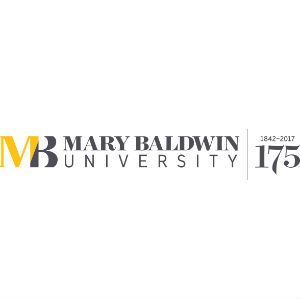
Highlights of the letter authored by Mary Baldwin Board of Trustees Chair Jane Harding Miller ’76 include:
“As you may know, a group of alumni opposed to the decision to launch University College has formed an organization named ‘Boldly Baldwin, Inc.’ This name usurps a trademark that the University has used since 2008 in various ways, including its recruiting and alumni relations materials. “Boldly Baldwin, Inc.” publicly professes the desire to divert fundraising away from Mary Baldwin University, and it is using the University’s own trademarks in that effort.”
“This organization has no official connection with Mary Baldwin, and as such, it sows confusion and puts the University at greater financial and operational risk.”
“This outside group has mounted a media campaign with letters to local newspapers disparaging the school and its leadership, making baseless accusations, misrepresenting facts, and suggesting closure of the school is imminent. In addition, at least some have declared on social media that ‘Boldly Baldwin, Inc.’ supporters are advising potential students against applying to MBU.”
“While we respect the rights of our alumni to organize and voice their opinions, we cannot allow anyone to co-opt trademarks and intellectual property belonging to the University. This is especially true when such groups deliberately seek to use those trademarks to undermine the university’s own fundraising and recruitment efforts. Through our counsel we have issued a letter to ‘Boldly Baldwin, Inc.’ requesting that it change its name, website, references to “Boldly Baldwin” and other associated trademarks.”
Text of the letter
An Open Letter to Alumni:
I am writing to inform you of several unusual actions the institution will be taking over the next few days and to give you a context for those actions, including some historical background as to how we arrived at this point.
The actions of a few have significantly damaged our institution and put additional financial strains on what is already a challenging situation. It has affected the morale of our faculty and staff, a group who has been steadfastly committed to this school and its students.
These actions have also distracted us from the very things on which we must focus our attention at this moment in time: the educational development of our current students, the recruitment for our 2017– 18 school year, and the launch of exciting programs like Women Entrepreneurs, our Master of Business Administration, the Master’s in Health Care Administration, and the University College’s fast-track programs.
As leaders of Mary Baldwin University, we have the ethical and fiduciary responsibility for selecting our path forward and for making executive decisions that in our judgment are in the best interest of the school. We have listened to, and assessed, every viable strategic option available. After considerable debate, we made the decision to launch the university’s first residential coeducational program.
Here is a synopsis of events that have occurred over the past four decades and which have led us to our decision.
The past three years have seen severe declines in enrollment. Enrollment in the Mary Baldwin College for Women fell in 2016 to 653 students — a decline of 100 since fall 2013. We parallel the rising national trends in tuition discount rates. Accordingly, President Fox and the Board faced a situation of a basically healthy institution with one unit — Mary Baldwin College for Women — generating what was now a very large and exponentially increasing standalone deficit. That shortfall approached $9 million annually, a trend that had been building over 40 years and had never been successfully reduced (except for a few intermittent periods) over the decades.
Immediately following the October 2015 Board meeting, I constituted an Enterprise Risk Task Force. For more than a year, a wide range of potential initiatives were thoroughly studied along with substantial faculty input; out of these emerged new program ideas, including the difficult, decisive step to open new coeducational residential living-learning communities.
We made this decision for the precise purpose of preserving our women-centered education and the women’s college specifically. Since the 1970s, Mary Baldwin has launched innovative programs, such as the Adult Degree Program in 1977, to create new funding sources while preserving the women’s college, despite ongoing enrollment declines similar to many other schools like us around the country and here in Virginia. Over the past three years, those trends have accelerated to a point that the other parts of the university can no longer cover the deepening financial losses of the women’s college.
We face some sobering facts. Over the past 50 years, women’s colleges were reduced in number from more than 250 to 38, with 13 closed or going fully coed in only the last four years. Many of those remaining are struggling financially, or, even if solvent, struggling to maintain enrollment. Each year for many years, the College Board has reported that only about 3 percent of high school students are willing to consider a women’s college.
Eleven years ago there were about 3,700 women in residential single-sex colleges within 125 miles of Staunton. Today there are fewer than 1,650.
In the face of the 50-year trend away from single-sex education, how much further can residential size be reduced and still maintain historic campuses? Our answer is: the pool of prospective students MUST increase. By instituting an additional unit, the coed University College, we expect to have an application pool that will eventually yield a residential component of 1,000 students, which is necessary to sustain the institution long-term.
Based on our experience, we expect that the pool of students will consist of some men, but that the largest number will be women. Our gender ratio in our existing coed programs (College of Education, Baldwin Online and Adult, Murphy Deming College of Health Sciences and Shakespeare and Performance) is about 90 percent female.
I also want to take this opportunity to make two things very clear as some of you may not have followed the evolution of this discussion over the past two months.
First: Mary Baldwin College for Women will remain a women’s college within the larger Mary Baldwin University umbrella. It will operate as a distinct student point-of-entry, alongside the Murphy Deming College of Health Sciences, the College of Education, Baldwin Online and Adult, Shakespeare and Performance, and the newly created University College.
Many of the similarly resourced schools in the Women’s College Coalition have adopted hybrid aspects like this and found that they resulted in enhanced financial stability without sacrificing the womencentered mission. Even though these institutions have hybrid features, the young women attending them report the same benefits as those reported by students at non-hybrid women’s colleges. Similarly, faculty and staff report positively on their experiences teaching and administering a women’s college within a larger university with coeducational programs. The same will be true for the Mary Baldwin College for Women. Those alumni who wish to direct their support to the women’s college are able to do so by restricting gifts to the university to be used in support of the College for Women. By law, the University must comply with that restriction.
Second: Mary Baldwin University is moving forward with our strategic plan to begin University College, a coeducational residential program on our campus while maintaining our historic College for Women, beginning in the fall of 2017.
The Board and Administration re-stated their unequivocal support for this path forward on January 30. As part of this resolution, the Board also expresses its unanimous gratitude and support to President Fox and the administration. President Fox has led, and will continue to lead, the institution through extremely successful innovations.
I must also address a matter that is both unfortunate and deeply concerning. As you may know, a group of alumni opposed to the decision to launch University College has formed an organization named “Boldly Baldwin, Inc.” This name usurps a trademark that the university has used since 2008 in various ways, including its recruiting and alumni relations materials. “Boldly Baldwin, Inc.” publicly professes the desire to divert fundraising away from Mary Baldwin University, and it is using the university’s own trademarks in that effort.
This organization has no official connection with Mary Baldwin, and as such, it sows confusion and puts the university at greater financial and operational risk.
This outside group has mounted a media campaign with letters to local newspapers disparaging the school and its leadership, making baseless accusations, misrepresenting facts, and suggesting closure of the school is imminent. In addition, at least some have declared on social media that Boldly Baldwin, Inc., supporters are advising potential students against applying to MBU.
While we respect the rights of our alumni to organize and voice their opinions, we cannot allow anyone to co-opt trademarks and intellectual property belonging to the university. This is especially true when such groups deliberately seek to use those trademarks to undermine the university’s own fundraising and recruitment efforts. Through our counsel we have issued a letter to “Boldly Baldwin, Inc.” requesting that it change its name, website, references to “Boldly Baldwin,” and associated trademarks.
I truly regret that the institution must take these steps regarding the actions of a group of alumni but there is no other option.
We are fortunate for our gracious donors and that the majority of alumni remain actively supportive of the administration and its plans for the future since this onslaught began. We will not let you down.
I extend my personal thanks to our dedicated and engaged Board of Trustees. This year alone, two members have pledged $1 million each to the school, and as an aggregate the Board provided 25 percent of the university’s annual unrestricted funding. Board members recruited at 58 high schools this fall. Several have spent countless hours advising the development of the new business and MBA programs, while others devote substantial personal time serving on search committees and other Board functions. Most Board members (70 percent) are alumni. Our other leadership boards are avidly engaged, and I would also like to thank them for their dedication and for matching the Board of Trustees’ 100 percent giving rate. The Alumni Board (founded in 1894) in particular has been instrumental in organizing the upcoming Summit on February 4.
I would also like to extend my deep gratitude to Karen Bailey-Chapman ’99. She has stepped in as a Board member to fill a sudden vacancy in our senior communications position. This appointment, which
takes her away from her home and business, is for the interim period and until a permanent hire can be made. We have already begun the search process. Karen is donating her time on a completely pro bono basis and in accordance with our own bylaws, which request that Trustees use their own particular skills in support of the institution when needed.
It’s time we moved confidently forward. We can rest assured that the incredibly tough choices we’ve made will preserve our great university and its women-centered mission.
Feel free to contact me at [email protected] with any additional questions or concerns regarding this information. I hope that you will support Mary Baldwin University and its path forward, whether through financial, professional, or moral support.










